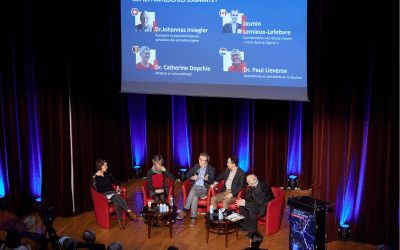On February 13th, the French Biomedicine Agency (“ABM”) published its report on the application of the bioethics law, just three weeks after the official launch of the National Bioethics Conferences on January 18, 2018.
The ABM reviewed 4 major topics for which it has been declared competent: organ donation, assisted-reproductive techniques (ART), prenatal diagnosis and embryo research. According to the report, the 2011 bioethics law has generally lived up to expectations. However, the ABM questions the issues related to the very fast progress of science and technology. Several risks that the Bioethics law could deteriorate, and lead to major ethical dilemmas, are noted in the conclusion as well as some recommendations for future action plans.
For embryos and embryonic stem cell research, the ABM questions again the authorization of research, in cases where no other alternative exists.
But whereas the ABM report questions the use of induced pluripotent stem (iPS) cells as a reliable alternative to the classic embryonic stem (ES) cells, the authors, at the same time, paradoxically wish to debate on the artificial gametes produced from these same iPS cells, to possibly manufacture embryos for research, although this is currently banned.
Since both INSERM and the French Medical Academy have recommended conducting genome modification research on embryos and gametes, the ABM also tables the question of authorizing this research.
The agency does not mention ART for cases other than medical indications (for single women or same-sex couples), nor auto-preservation of oocytes for non-medical reasons, nor the anonymity of the donation of gametes. These 3 issues are part of the debate in the current National Bioethics Conferences.
On the other hand, the ABM addresses the ban on post-mortem insemination. The agency recommends setting an age limit for insemination with ART and authorizing the dual donation of gametes, which is now forbidden, and specifies that at least one member of the couple should be genetically related to the unborn child.
As proof of the growing pressure to obtain gametes, the ABM advocates relinquishing the requirement for the donor’s spouse to consent to a donation. They go as far as advocating the management of oocyte donations to the lucrative private sector.
Wouldn’t this circumvent the principle of gratuity?
The ABM report also proposes facilitating the procedures involving donation of embryos, which currently require authorization from the High Court’s president for both the donor couple, and the recipient couple, considering the responsibility of transferring one’s own embryo to another couple.
The ABM deemed it inadvisable to review the presumed consent to organ donation, but finds it appropriate to link this to the advance directives.
The agency suggests extending the reciprocity system for organ donation to an international level (for living donors and recipients). In addition, the ABM proposes harmonizing the collection and donation of hematopoietic stem cells (cord blood, bone marrow donation, etc.).
Scientific progress, such as genome sequencing, continues to raise more ethical issues. Without offering any conclusions, the ABM instead tables a series of questions. For example: what would happen if prenatal screening included sequencing the whole genome; what would the consequences entail?
International Symposium on the End of Life – Euthanasia and Assisted Suicide Worldwide
At a time when France is considering legalising euthanasia and assisted suicide, Alliance VITA, together with IEB...



